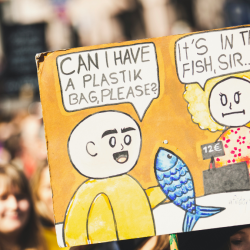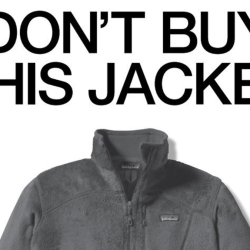‘Greenwashing’ is finally cementing its place in the common vernacular (even though ‘greenwash’ has been in use since the late 1980s). Merriam-Webster officially added it to the dictionary in 2022, and ‘greenwashing’ is now poised to overtake ‘corporate social responsibility’ as a search term, which is both bleak and hilarious.
At the time of writing, here are three news stories just from the past week:
- Investors withdrew $10 billion last year from funds that claimed to be ‘ethical’ amidst concerns about those funds making ‘exaggerated, misleading, or unsubstantiated claims’ about their underlying investments
- A group of US senators described ‘certified natural gas’ as ‘a dangerous greenwashing scheme’
- STAND.earth launched a complaint against Lululemon to test Canada’s greenwashing laws
Clearly, growing awareness of greenwashing hasn’t magically fixed the problem. And in some ways, that awareness is making climate progress harder; when people see greenwashing everywhere, they get cynical. As outlined in the 2023 research paper ‘Social cynicism, greenwashing, and trust in green clothing brands’, ‘higher perceptions of greenwashing affect green purchasing intentions since consumers distrust companies’ green claims.’ The more people sense that brands are being dishonest with them, the less likely they are to even bother considering the sustainability of future buying decisions. And, according to a 2020 study by Nationwide, only around 40% of UK consumers even feel financially capable of making eco-friendly choices in the first place. In an atmosphere so thick with misdirection and lies, we might expect this cynicism to soak into political attitudes, too. Whether consciously or otherwise, voters may increasingly ignore green promises in election campaigns, concluding that it’s all probably bullsh*t anyway. That’s if they hadn’t already lost all trust in politicians, of course. But polling shows that voters are saying that ‘climate change matters to them, and they want bold policies to tackle it.‘
So how cynical are people, exactly? Here are some stats I found:
- 43% of employees think their company has been guilty of greenwashing (source)
- Only 25% of consumers trust the claims of FMCG brands about their environmental practices (source)
- 63% of investors say they don’t trust ESG claims from supposedly climate-friendly funds (source)
And how well does that reflect reality? Let’s look at some more numbers:
- 39% of sustainability claims in the textile, garment and shoe sector could be false or deceptive (source)
- 4 in 10 companies that market their goods with catch-phrases like ‘eco,’ ‘sustainable,’ and ‘all-natural’ either don’t have any evidence, or are hiding evidence to the contrary (source)
- The number of instances of greenwashing by banks and financial services companies around the world rose 70% in the 12 months up to October 2023 (source)
We need people to believe that how they spend their money makes a difference. Greenwashing erodes that belief. We talk a lot about the consumer say/do gap in marketing, but it’s the gap between what companies say and do that breeds distrust. Greenwashing contributes to the broader crisis of authenticity and trust that permeates our world.
One way environmentally-conscious brands can combat this — and stop making the narrative climate worse, is by simply getting on with lowering their environmental impact without broadcasting too many earnest, worthy messages about it. Instead, most brands should focus on reaching their target customers with creative, memorable communications that connect emotionally, without a greasy veneer of virtue signalling. If your company really is a greener choice, then you owe it to the world to market it in the most effective way, not the most purpose laden. Just like you can be a vegan without making it your whole identity, a company can be good and honest without going on about it all the time.
Preaching is a lesser sin than greenwashing, but it’s a lazy and ineffective method of persuasion. The brands best placed to endure engage in neither of these toxic habits.
Featured image: Zuzanna Szczepańska / Unsplash































